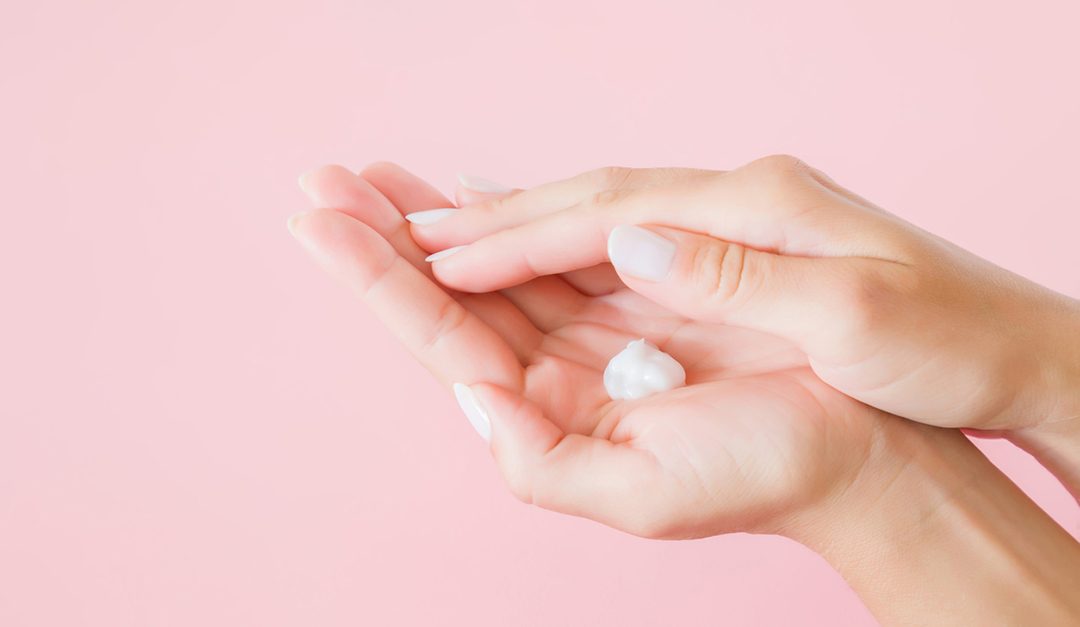Most people are washing their hands or using hand sanitizer more frequently these days. Many are also wearing face masks when in public or during work shifts, often for hours at a time.
These measures are key to reducing the spread of the virus that causes coronavirus disease 2019 (COVID-19). But they can irritate and damage your skin. Making a few skin care changes for your hands and face can help counteract these effects.
Hand care
One of the most important things you can do to protect against COVID-19 is to keep your hands clean and free from germs. The Centers for Disease Control and Prevention (CDC) recommends that you wash your hands often with soap and water for at least 20 seconds, or use an alcohol-based hand sanitizer that contains at least 60 percent alcohol.
But lots of hand washing can strip your hands of their natural oils. To prevent dry, cracked skin:
Be gentle on your hands. Use cool or lukewarm water with soap to wash your hands. Hot water isn’t any more helpful against germs that can make you sick. And hot water can increase skin damage.
Avoid antibacterial cleansers. They aren’t that useful for preventing infectious disease. And they contain chemicals such as fragrance that can irritate skin.
Wear gloves when cleaning to protect your skin. Disinfectants for cleaning surfaces are effective against germs, but some of the ingredients can be harsh on your hands.
Moisturize, moisturize. After washing your hands, gently rinse and pat them dry. Right after, apply plenty of moisturizer. If your hands still feel dry after a minute or so, apply more. Use a moisturizer that’s hypoallergenic and free of fragrances and dyes that can irritate your skin. Keep the moisturizer handy—next to bathroom and kitchen sinks, in your car or at your workspace. Make it easy to repeat this critical step.
Combine moisturizers. Sometimes, a combination of moisturizers works best. Lightweight creams typically draw moisture to the skin’s outer layer. Look for ingredients such as urea, glycerin or hyaluronic acid. To seal the moisture in, follow with a heavier moisturizer that prevents water loss. Oil-based creams or petroleum jelly work well. Because heavier moisturizers can feel greasy, some people leave a thick layer on their hands covered with cotton gloves overnight.
Don’t ignore early skin protection. Even if your hands don’t feel dry or chapped, be sure to moisturize them regularly. Preventing skin irritation from developing in the first place is more effective than trying to catch up later when skin is already broken and cracked.
Facial Care
Many workers in places such as salons, restaurants, retail stores and in health care wear masks throughout their shifts during the COVID-19 pandemic. The CDC recommends wearing cloth masks in public to help reduce the spread of the coronavirus by people who have COVID-19 but don’t realize it.
But as helpful as it is, mask use can lead to chafing of the skin on the bridge of your nose, chin, cheeks and even behind the ears. Some people develop itchiness or a rash. Sweaty or damp conditions under the mask can lead to acne breakouts. To ease these complications of mask wearing during the COVID-19 pandemic:
Adopt a regular skin care routine. Cleanse and moisturize your face before and after using a mask. Choose products labeled “noncomedogenic,” which means they won’t clog skin pores. Don’t use products with petrolatum, though. Petrolatum is a common ingredient in “heavy-duty” creams and ointments, such as petroleum jelly. It can get in the way of the mask’s function, especially N95 masks used by some health care workers. If your skin tends to be on the oily side, go for a water-soluble moisturizer.
Use a barrier ointment or bandage. To prevent or relieve skin injuries caused by pressure or friction from masks, a thick layer of zinc oxide can soothe and protect skin. Zinc oxide is a skin protectant often used for diaper rash or severely chapped skin. Use it on the bridge of your nose or behind your ears. You can also try placing a bandage between the skin pressure points and the mask. Ask your doctor or pharmacist about bandages or dressings that provide cooling relief and conform to the skin while still allowing for appropriate mask use.
Ease blisters. If a blister forms, keep it clean and apply antibiotic ointment. Use a bandage to create a protective barrier between the blister and the mask.
Treat acne. If you develop acne, cleanse your skin regularly. Use a water-soluble moisturizer. Look for acne treatment products that contain retinoids, benzoyl peroxide and salicylic acid. Also, avoid popping or squeezing pimples, which can contribute to inflammation and infection of the area.
Professional Care
Don’t give up on washing hands and wearing masks, as these are critical prevention measures against COVID-19. In the meantime, taking the steps described above can help protect your skin.
If you develop cracked skin that starts to bleed, blisters turn into ulcers or become infected, or if you have a serious skin reaction, talk to your doctor promptly. Damaged skin can increase your risk of infection and may need more than home care. Treatment may include prescription medicines and skin therapies.
2020© Mayo Foundation for Medical Education and Research
Distributed by Tribune Content Agency, LLC


